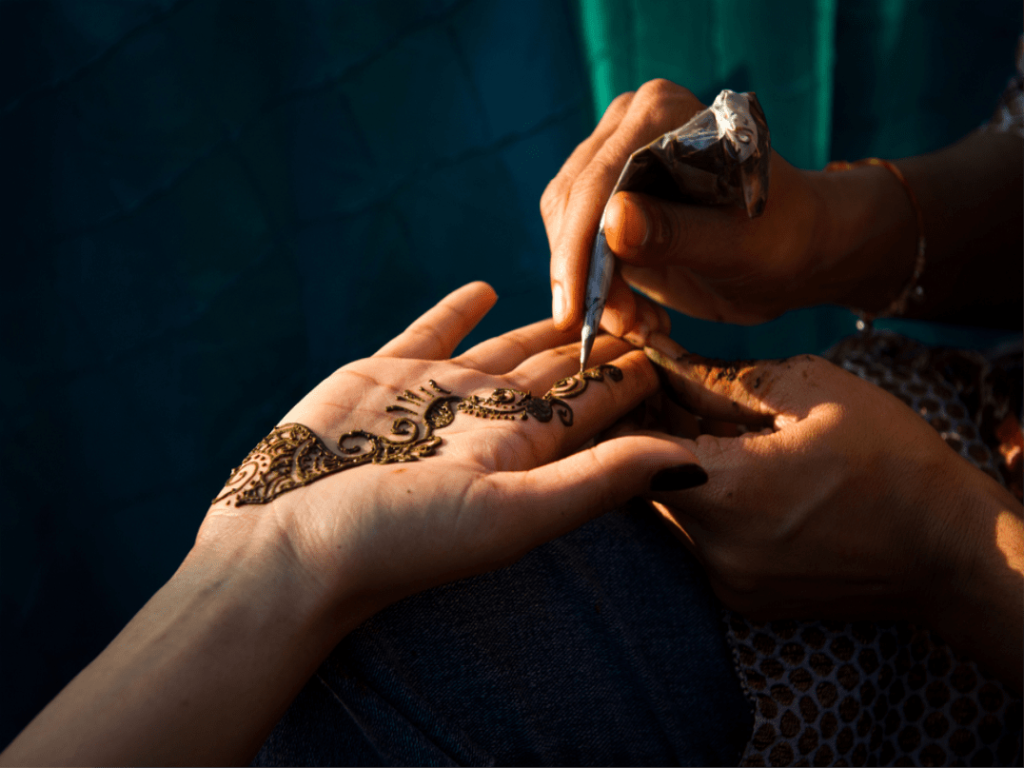Since the time of the Pharaohs, the dream of their wedding day has been deeply ingrained in the hearts of Egyptian brides. The cherished Egyptian wedding traditions and rituals have remarkably endured through the centuries. Today, we’ll explore the captivating wedding traditions of Arab culture, focusing specifically on Egypt, a land where heritage and culture are integral to its identity.
Wedding in Egypt: From Ancient Meetings to Modern Proposals:
Even in Ancient Egypt, temples and festive gatherings served as meeting places for young couples. Moreover, a tradition in ancient times dictated that the eldest daughter warmly welcome guests at the family home—a custom that still persists in rural parts of Egypt. While arranged marriages still occur, most Egyptian marriages today involve families meeting to formally arrange the union.
Regardless of how the couple meets, the formal proposal in Egyptian marriage customs involves the groom’s family visiting the bride’s family, bringing two significant gifts. During this crucial meeting, the mahr (مهر), the Egyptian marriage dowry paid to the bride’s family, and the shabka (شبكة), a valuable gift of gold and precious stones for the future Egyptian bride, are agreed upon. Following this agreement, preparations begin for a lavish engagement party.
Putting a Ring On It: The Engagement Celebration:
The engagement party is typically held in an ornate banquet hall adorned with vibrant flowers and dazzling lights. Guests partake in a generous feast, lively dancing, and the joyous ululations of the women. The Egyptian bride usually wears a simple yet elegant pink or blue dress.
A highlight of the engagement party is when the fiancé presents his intended bride with the agreed-upon shabka. He also places a gold ring—a symbol of eternity in Ancient Egypt—on her right finger. After the engagement, the couple begins the exciting process of searching for a home together during their engagement period. Once the groom has prepared their future residence, they start making plans for their wedding Egyptian style celebration.
The Night Before: Henna Night Celebrations:
The night preceding the wedding in Egypt, known as “Henna Night,” is a significant celebration for both Christian and Muslim families. Relatives, friends, and neighbors gather separately: women at the Egyptian bride’s house and men at the groom’s. At the bride’s, the women sing and dance throughout the night, and the bride, wearing a pink silk or cotton dress, has intricate henna patterns applied to her hands and feet—a beautiful Egyptian marriage custom. Meanwhile, at the groom’s gathering, the men also celebrate with music and dancing, and the groom in his finest suit.
Here Comes the Bride (and Groom): The Wedding Ceremony:
Egyptian weddings are typically grand affairs held in spacious marriage halls. Traditional Egyptian brides often wear brightly colored, jewel-encrusted dresses, and a veil is an essential part of their Egyptian wedding attire. The groom usually wears a ceremonial tribal costume. During the Egyptian marriage ceremony, the families of both the bride and groom sign a wedding contract according to Egyptian marriage laws in the presence of a mazoon (مأذون), a licensed official who provides marriage certificates and registers the marriage with the government. A special sweet drink made of rose water, called sharpat, is served. Singers and belly dancers, often performing the captivating candelabra dance, entertain the wedding guests.
Egyptian Wedding Gifts:
Unlike some cultures, Egyptian wedding gifts are usually given to the newlyweds either before or after the party, rather than during. These gifts often include items for their new home, such as vases or decorative plates, or even simple gestures like chocolates.
As the celebration draws to a close, the Egyptian bride and groom depart for the groom’s house. In rural Egypt, a beautiful and colorful procession, often with the bride traveling on camelback accompanied by singing and dancing wedding party members, escorts her to her new home.
Finally, a heartwarming Egyptian wedding tradition involves the Egyptian bride’s mother lovingly preparing all the meals for the newlywed couple for the entire first week after their Egyptian marriage ceremony.
If you’re captivated by the idea of learning more about Arab culture or even want to learn to speak Arabic in the Egyptian dialect, explore our website for a wealth of information. Discover the best way to learn Arabic through our engaging Arabic learning apps! Download the Kaleela Arabic learning app to your iOS or Android device and immerse yourself in the language and culture of Egypt!



